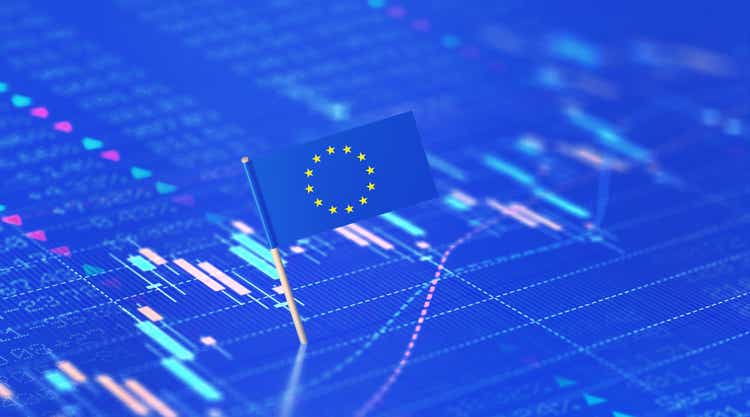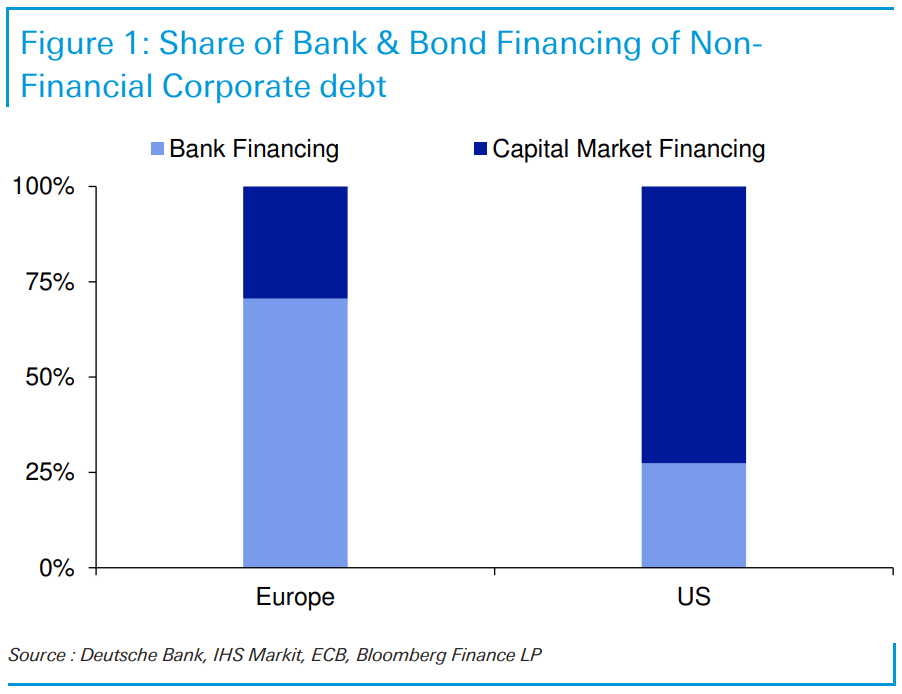

MicroStockHub
Ahead of the European Central Bank’s (ECB) latest rate decision, Deutsche Bank believes the lag of monetary policy might be transmitting more rapidly in Europe than in the U.S.
After raising interest rates for nine consecutive meetings and delivering a cumulative 425 basis points of hikes since July 2022, the ECB is now expected to hold rates steady. The policy tightening has had its intended effect, with economic growth having stalled for months and consumer inflation holding steady at 5.3% in August, though still significantly higher than the central bank’s 2% medium-term target.
“As we hit U.S. CPI week, don’t forget the ECB meeting on Thursday where our economists long standing view of a 3.75% terminal will be tested,” Deutsche Bank’s Jim Reid said in a note on Monday.
“At the moment markets are pricing a 38% chance of a hike to 4% so the meeting is still in the balance. Even if they do hold don’t expect them to suggest this is the final hike of the cycle though as uncertainty remains high with inflation sticky but growth pretty much stagnant since last autumn,” Reid added.
ECB chief Christine Lagarde at the Federal Reserve’s Jackson Hole Symposium event in August stressed that the fight against inflation was not won, though she did acknowledge that progress had been made.
Reid outlined the following two charts to showcase how the U.S. is lagging Europe in terms of transmission of policy:
“Around 70% of Eurozone business debt is bank based and therefore far more likely to be variable rate, vs. only c.25% in the U.S. U.S. business debt is more likely to be fixed rate, with the vast majority financed via the longer-tenor investment-grade and high-yield bond markets,” Reid said.
“The second chart … shows that European corporate net interest payments are rising sharply in contrast to a surprise decline in the U.S.,” Reid said.
The ECB has continued to stress a data-dependent approach in making rate decisions, similar to its U.S. counterpart in the Federal Reserve. While the Fed has recently dialed back on rate hikes in order to assess the effects of its tightening campaign, the ECB has stuck to hikes as inflation has proved stubborn.
However, with economy activity continuing to remain subdued, the ECB is now expected to pause hiking rates amid concerns of recession.
European stock indexes: STOXX Europe 600 Index (STOXX), FTSE 100 Index (UKX), DAX Germany Index (DAX:IND), CAC 40 France Index (CAC:IND)
Currencies: (EUR:USD) (GBP:USD) (CHF:USD)
ETFs: (EWG), (GF), (EWI), (EWQ), (EWGS), (FGM), (DBGR), (DXGE), (HEWG), (DAX), (FLFR), (FLGR), (FLIY), (FXB), (EWU), (FKU), (EWUS), (HEWU), (FLGB), (GREK)







